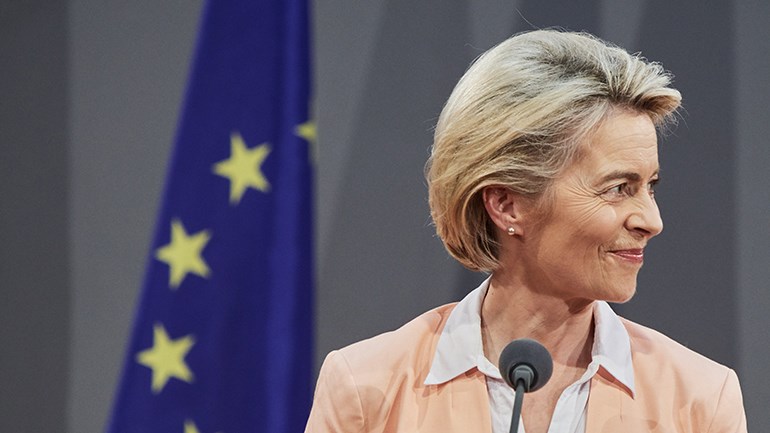President of the European Commission assumes more power

According to researcher Calle Håkansson, Ursula von der Leyen is the strongest Council President for decades. "The EU can be a kind of facilitator, not only for member states' defence policies but also for NATO, where the EU can help finance defence industry projects."
A decade of external crises has made the European Commission an increasingly active player in European security and foreign policy. In particular, its president has been given a greater role in making snap decisions, according to a Malmö University researcher.
“Ursula von der Leyen is definitely the strongest president since Jacques Delors in the 1980s and 1990s. There has also been an ambition in recent years for the commission to become more geopolitical, to take more initiative on issues related to defence and security policy,” says Calle Håkansson.
At the moment, the indications are that the role of the commission and especially its president will continue to be strengthened, which has proved to work well.
Calle Håkansson
At the same time, his research shows that there is a dynamic between the intergovernmental and supranational levels, and that it is still the heads of state of governments in the European Council that provide the impetus for the commission and other bodies to act. National leaders provide the political guidance, but they often rely on others to provide the solutions. “The commission then pushes forward with ideas and processes that often lead to more common frameworks,” says Håkansson.
Foreign and security policy has traditionally been seen as an area of the member states, recently however, the council and other EU institutions have recognised the benefits of coordinating policies in different areas. Håkansson finds the background of this shift to be the crises of the last decade: the annexation of Crimea, covid, and the war in Ukraine. The EU has proven to be more resilient and united than many predicted.
“During the covid crisis, decisions were made on joint procurement of vaccines and borrowing. Then came the strong response to the Russian invasion of Ukraine. I would say that a major reason for these decisions is the commission's more geopolitical role within the EU as a driving force," says Håkansson.
In the study, he highlights two examples where the commission took the initiative: the sanctions against Russia where the commission took a much bigger role in quickly developing and establishing the sanctions packages. “It was clear the EU had learned from the annexation of Crimea in 2014 when things were much slower.”
The second example is the transatlantic coordination in the response to the attack on Ukraine. It was very clear how US president Joe Biden and his staff turned to von der Leyen and her inner circle, and that they worked together to produce different packages, observes Håkansson.
Whether the European Commission will continue to play this "government-like" role, he says, is uncertain.
"At the moment, the indications are that the role of the commission and especially its president will continue to be strengthened, which has proved to work well. Yet it is not certain that the European Parliament and other institutions want this shift in power.
“Since the war, the EU has taken a number of historic decisions and the membership process for Moldova and Ukraine has started again. At the same time, we can see that the US is still by far the most important actor in supplying arms to Ukraine.
“The war has also demonstrated the shortcomings of the EU countries' defence policy, as they were not prepared for a large-scale war. The NATO negotiations also highlight that it is safer to be in NATO than in the EU, which is not a defence alliance but a political alliance.”
Text: Magnus Jando & Adrian Grist